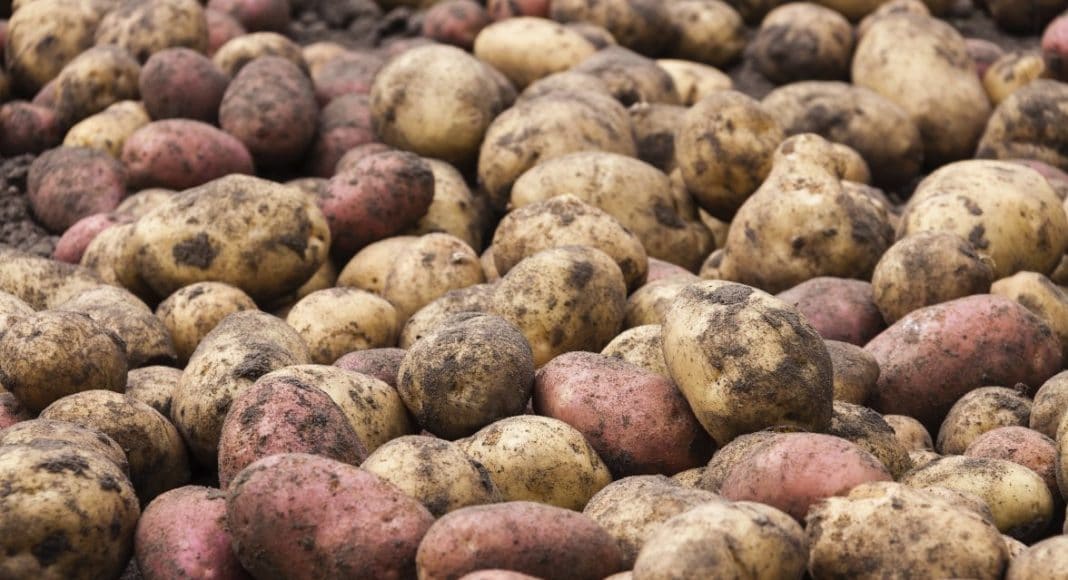As potatoes sit in storage and start to rot, potato growers are awaiting more direction from the federal government following the announcement of the $50-million Surplus Food Purchase Program in May, a new release from Potatoes New Brunswick on June 4 says. There has been little news released about the program since the announcement.
“We need to finally settle with the province and federal government so that we can dispose of these potatoes now,” says Matt Hemphill, Executive Director of Potatoes New Brunswick in the release. “That could mean turning them to cattle feed or creating more freezer capacity to get them processed into french fries or donating to food banks. But the reality is we need help and support to do that, and the government has yet to make any tangible move in the right direction.”
The pandemic economic shutdown has affected the potato industry through the closure of food service establishments. This has resulted in the equivalent of 700 transport truckloads surplus of potatoes in New Brunswick alone, the release notes.
Canadian potato farmers have also grown millions of pounds of seed potatoes for this year which have gone unused, as dropping demand for potatoes means fewer acres were planted, the release says. Seed potatoes take years to cultivate, but are now starting to sprout in storages which makes them unusable.
Potatoes account for a third of all vegetable farm cash receipts in the country, the release notes. While the country is also the world’s second-largest exporter of french fries after the Netherlands. Before the pandemic hit an estimated 70 per cent of all potatoes grown in Canada were for processing.
“The government needs to remember we are dealing with a perishable crop,” says Richard Strang, CEO of Strang’s Produce in Malden, N.B. in the release. “The longer they delay, the greater the risk of spoilage and the increased chance we have to deal with potato blight in addition to the surplus.”











